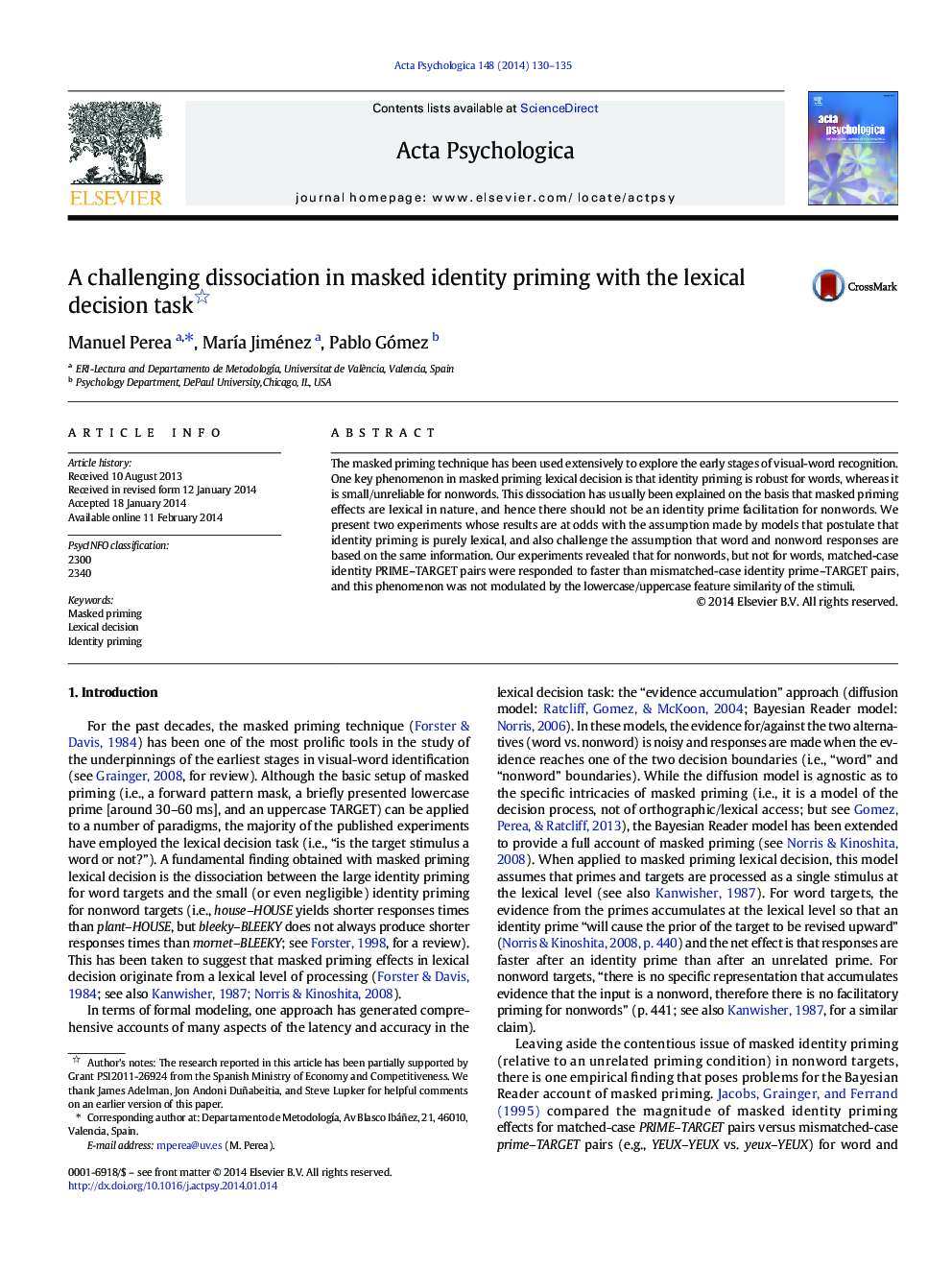| Article ID | Journal | Published Year | Pages | File Type |
|---|---|---|---|---|
| 7277807 | Acta Psychologica | 2014 | 6 Pages |
Abstract
The masked priming technique has been used extensively to explore the early stages of visual-word recognition. One key phenomenon in masked priming lexical decision is that identity priming is robust for words, whereas it is small/unreliable for nonwords. This dissociation has usually been explained on the basis that masked priming effects are lexical in nature, and hence there should not be an identity prime facilitation for nonwords. We present two experiments whose results are at odds with the assumption made by models that postulate that identity priming is purely lexical, and also challenge the assumption that word and nonword responses are based on the same information. Our experiments revealed that for nonwords, but not for words, matched-case identity PRIME-TARGET pairs were responded to faster than mismatched-case identity prime-TARGET pairs, and this phenomenon was not modulated by the lowercase/uppercase feature similarity of the stimuli.
Related Topics
Life Sciences
Neuroscience
Cognitive Neuroscience
Authors
Manuel Perea, MarÃa Jiménez, Pablo Gómez,
